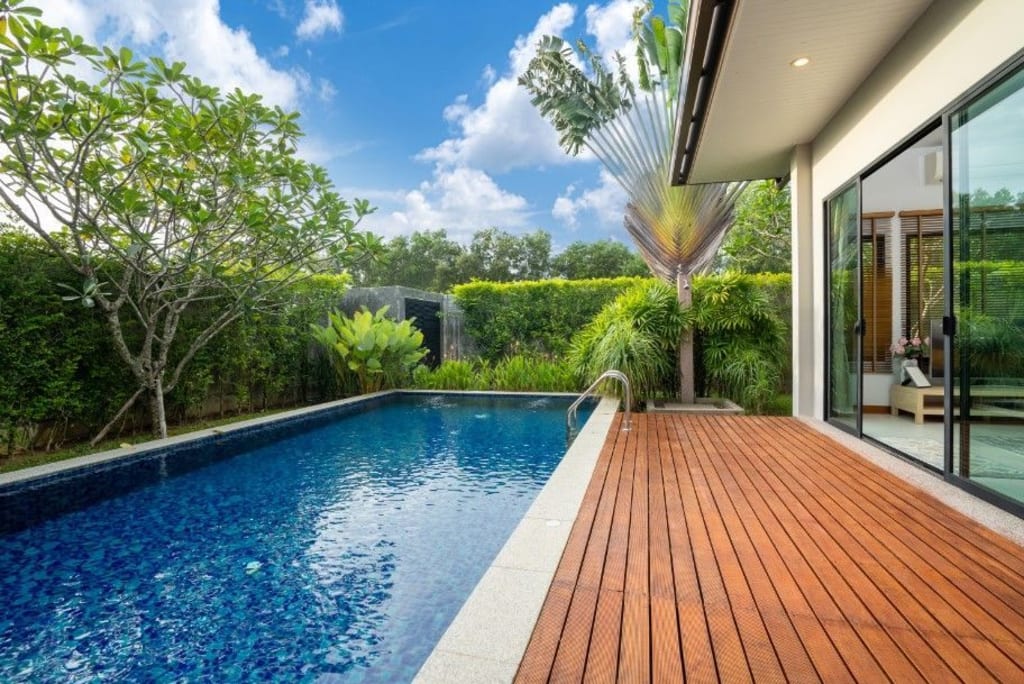Transform Your Outdoor Space with a Custom Swimming Pool
Managing Pool Cost Per Month in Electricity

A custom swimming pool can truly transform your outdoor space, creating a luxurious oasis right in your backyard. However, it's important to consider the long-term costs associated with pool ownership, especially the pool cost per month in electricity. By taking a thoughtful and strategic approach to design, equipment selection, and maintenance, you can enjoy the benefits of a custom pool while effectively managing and minimizing the monthly electricity expenses. In this article, we will delve deeper into each aspect of pool ownership, providing valuable insights and tips to help you make informed decisions about your custom pool project.
Designing the Perfect Custom Pool
When designing a custom swimming pool, it's essential to consider both aesthetics and functionality. Start by envisioning how you want to use the pool and the overall ambiance you desire. Think about the size, shape, and depth that will best suit your needs. Additionally, consider incorporating features like waterfalls, slides, or built-in seating areas to enhance the visual appeal and enjoyment of your pool.
Collaborating with experienced pool designers and builders is crucial to bring your vision to life. They can provide valuable guidance on material selection, layout optimization, and efficient water circulation design. By working closely with professionals, you can create a custom pool that seamlessly integrates with your outdoor space while ensuring energy efficiency and cost-effectiveness.
Energy-Efficient Pool Equipment
Investing in energy-efficient pool equipment is a smart choice to minimize your pool's electricity consumption. Pool pumps are one of the primary energy consumers, so selecting a variable-speed or multi-speed pump can make a significant difference. These pumps allow you to adjust the speed based on the required water flow, reducing energy usage compared to traditional single-speed pumps.
When it comes to pool heaters, consider options such as heat pumps or solar heaters. Heat pumps use ambient air to heat the pool water and are more energy-efficient than gas heaters. Solar heaters, on the other hand, utilize renewable energy from the sun to warm the water. By choosing these energy-efficient heating options, you can lower your pool's electricity expenses while still enjoying comfortable water temperatures.
Another aspect to consider is pool lighting. Opt for LED lights, which are not only energy-efficient but also have a longer lifespan compared to traditional incandescent bulbs. LED lights can create stunning visual effects and enhance the atmosphere of your pool area while keeping energy consumption to a minimum.
Efficient Filtration and Maintenance
Proper filtration and maintenance are essential for keeping your pool clean and the water safe. Regularly clean or backwash the pool filter to ensure optimal filtration efficiency. A clean filter allows for better water flow, reducing the strain on the pump and minimizing energy consumption. Different types of filters, such as sand, cartridge, or diatomaceous earth (DE) filters, have varying maintenance requirements and energy efficiency. Consider choosing a filter that strikes the right balance between effectiveness and energy consumption.
Skimming the pool's surface, vacuuming the pool floor, and brushing the walls are also critical maintenance tasks. By removing debris and preventing algae growth, you reduce the load on the filtration system, resulting in improved energy efficiency. Additionally, proper water chemistry maintenance is crucial. Regularly test and balance the pool water's pH, alkalinity, and sanitizer levels to ensure optimal chemical effectiveness and reduce the need for excessive filtration cycles.
Optimizing Pump Usage
The pool pump plays a significant role in the pool's energy consumption. To optimize pump usage, program it to run during off-peak hours when electricity rates are lower. By taking advantage of lower rates, you can reduce your monthly electricity expenses. Additionally, determine the appropriate runtime for your pump based on your pool's specific requirements. Factors such as pool size, bather load, and filtration needs should be taken into account when setting the pump's schedule.
Consider upgrading to a variable-speed pump, which allows you to adjust the pump's speed to match your pool's needs. Variable-speed pumps consume less energy than single-speed pumps because they can operate at lower speeds for extended periods, reducing energy waste. This flexibility not only saves electricity but also contributes to quieter operation and longer pump lifespan.
Pool Covers for Energy Conservation
Investing in a high-quality pool cover is a simple yet effective way to conserve energy and reduce your pool cost per month in electricity. Pool covers act as a barrier, preventing water evaporation and heat loss. By reducing evaporation, you minimize the need for frequent water top-ups, conserving water resources. Furthermore, a pool cover helps retain heat, reducing the reliance on pool heaters and consequently lowering energy consumption.
Choose a cover specifically designed for swimming pools, such as a solar cover or an automatic pool cover. Solar covers are made of a special material that absorbs and transfers heat from the sun to the water, providing natural warmth. Automatic covers are convenient and provide insulation, reducing heat loss during non-swimming hours.
Utilizing Solar Energy
Harnessing solar energy is an excellent way to further reduce your pool's electricity consumption and reliance on traditional energy sources. Solar panels can be installed to power pool equipment such as pumps, lighting, and heating systems. By utilizing the sun's renewable energy, you can significantly reduce your pool's operating costs and environmental impact.
Solar pool heating systems are particularly beneficial for extending your swimming season without increasing electricity usage. These systems use solar collectors to capture the sun's energy and transfer it to the pool water. They are cost-effective, eco-friendly, and offer a sustainable heating solution for your pool.
Conclusion
Transforming your outdoor space with a custom swimming pool is an exciting endeavor. By incorporating energy-efficient equipment, optimizing pump usage, utilizing pool covers, and exploring solar energy options, you can manage the pool cost per month in electricity effectively. With careful planning, design, and maintenance, your custom pool will provide years of enjoyment while keeping energy expenses in check.





Comments
There are no comments for this story
Be the first to respond and start the conversation.